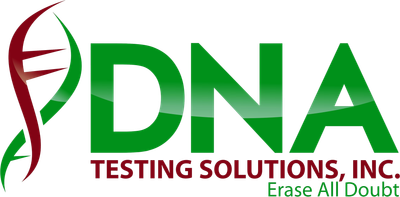About Non-Invasive Prenatal Paternity Testing
About Non-Invasive Prenatal Paternity Testing
Pregnancy can be an exciting experience, but questions about paternity can be stressful. If you are expecting and want to do a paternity test while pregnant, DNA Testing Solutions offers the Non-Invasive Prenatal Paternity test, a highly-accurate test that can determine an unborn child’s biological father as early as 7 weeks into the pregnancy.
Some of the benefits of a prenatal paternity test include eliminating the stress of not knowing who the father is, making sure the right person is there to support you through your pregnancy and delivery, and being able to begin legal arrangements, including child support and custody.

Can I Get a Paternity Test While Pregnant?
Yes, you can get a paternity test while pregnant with the safe and patented Non-Invasive Prenatal Paternity test from DNA Testing Solutions. This advanced DNA test requires only a blood sample from the mother and a simple cheek swab from the possible father, and can be performed as early as seven (7) weeks into the pregnancy. Because the test is completely non-invasive (only a blood sample is required from the mother), there is no risk to the pregnancy.
In the past, the only tests available were amniocentesis and CVS (Chorionic Villus Sampling), which are invasive tests that may cause miscarriage. Because of the possible dangers, most doctors do not offer these tests anymore for determining paternity alone. Fortunately, advances in DNA technology have brought about NIPP, a completely safe, non-invasive prenatal paternity test that provides answers earlier than ever.
How it Works: Getting the Paternity Test While Pregnant
- Call our prenatal paternity specialists at 1-800-487-1252to locate your nearest testing facility (over 3,000 nationwide in our network) and schedule an appointment for the mother and possible father. Separate appointments can be arranged, if desired
- At the clinic, the mother’s blood is drawn and the possible father’s DNA is collected via cheek swab
- DNA from the baby is contained in the mother’s blood stream; Our specialized lab isolates the baby’s DNA from the mother’s and a DNA profile for the unborn child is obtained. That DNA profile is then compared with both the father’s and the mother’s, and a probability of paternity is established
- Your results are available online at the DDC secure portal within about one week. The baby’s gender can be reported also, if you wish
CALL US FOR A FREE CONFIDENTIAL CONSULTATION AT 1-800-487-1252 WE’RE HERE TO HELP.
Quick Facts about the Non-Invasive Prenatal Paternity Test
- The mother must be at least 7 weeks pregnant
- A paternity test while pregnant is not an option for a woman carrying multiple fetuses (twins or triplets) because current technology does not permit the isolation of multiple babies’ DNA profiles
- The medical facility that collected samples works directly with the DNA Testing Solutions' lab to get the samples processed and analyzed. Results are generally returned in about one week (7-10 business days, with faster (3 Business Days) results available for an additional fee )
- The results of your Non-Invasive Prenatal Paternity test can be used in court or for legal matters. (Unless the Non-Chain Testing is requested)
- Call us for a list of different samples that can be used for the Alleged Father (Finger nail Clippings, ear swabs etc...)
Getting Started
To get started, call our knowledgeable prenatal paternity specialists at 1-800-487-1252 We’ll discuss whether the Our NIPP test is an option for you, help you locate your nearest DNA-collection facility, and schedule an appointment for you right there on the phone.



